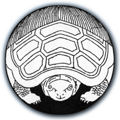Rachel and Simon speak with the novelist Ruth Ozeki. In the 1980s Ruth worked in film, first as an art director and production designer for low-budget horror films, then as a writer, producer and director of independent films. "Halving the Bones" (1995), a documentary about her family history and the process of bringing her grandmother's remains from Japan, was nominated for the Grand Jury Prize at the Sundance Film Festival. Her first novel, "My Year of Meats", was published in 1998 and "All Over Creation" followed in 2003. In 2010 Ruth was ordained as a Soto Zen Buddhist priest. "A Tale for the Time Being", published in 2013, was shortlisted for the Booker Prize and has been published in more than 30 countries. We spoke to Ruth about her childhood interest in writing, the mutually reinforcing practises of novel-writing and Zen Buddhism, and her new novel, "The Book of Form and Emptiness", recently shortlisted for the Women's Prize.
May 3, 2022
Always Take Notes Podcast
Always Take Notes, Episode #133: Ruth Ozeki, novelist
